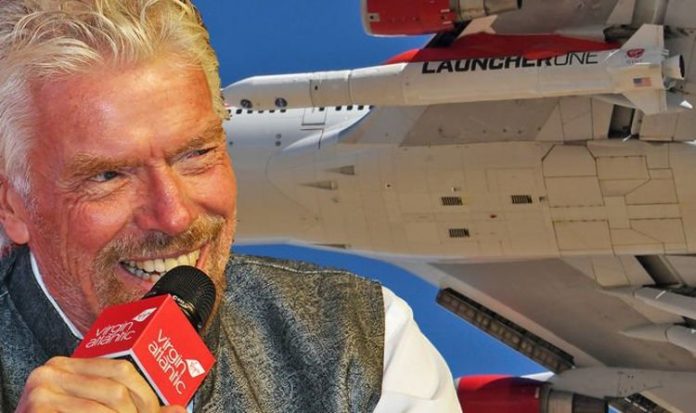Spaceport Cornwall: Newquay set to be hub of UK space travel
Last month Richard Branson’s Virgin Orbit successfully completed the first full orbital launch of its LauncherOne system from Mojave Air and Space Port in California. The company used a modified Boeing 747-400 aircraft to cruise to 30,000 feet before the rocket was blasted into Low Earth Orbit (LEO) to deploy 10 CubeSat satellites. And now, as Mr Branson’s “key delivery partner” in the UK, Spaceport Cornwall is set to become Europe’s first horizontal launch site to provide a responsive, affordable and efficient way to launch small satellites.
And interim Head of Spaceport Cornwall Melissa Thorpe has revealed exclusively to Express.co.uk the niche opportunity that has now been handed to Prime Minister Boris Johnson.
She said: “It’s a huge milestone because it not only proved the technology, but it allows us now to move forward with infrastructure and expenditure.
“It has also given us a lot of information and data that we can use to make our operations in Cornwall more efficient and effective.
“It is very different technology from what is being used by others at the moment – it uses an existing runway and a carrier aircraft – a 747 in this case – that has been modified to have a rocket under its wing.
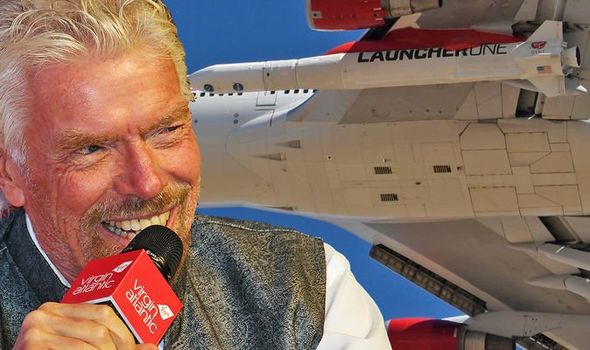
Richard Branson has identified Cornwall as his preferred location in Europe (Image: GETTY)
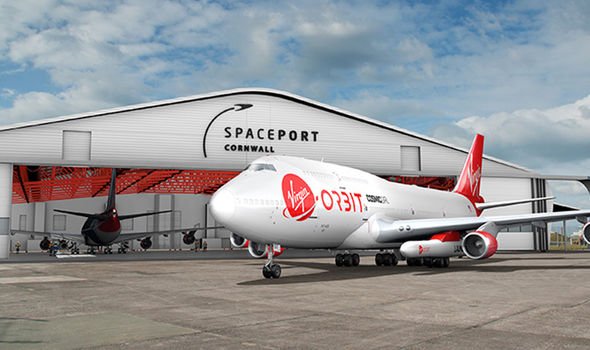
Spaceport Cornwall presents a huge opportunity (Image: GETTY)
“A traditional rocket launch would go from the ground up to space in a vertical fashion, but this one takes off at the end of a runway, goes up to about 30,000 feet and then the rocket is deployed. It’s called an air-launch.
“That makes it more flexible because it can be launched in different areas and it can be used anywhere with a long enough runway.”
Spaceports have traditionally been used to launch spacecrafts into orbit by blasting huge heavy-lift vehicles off launch pads vertically, but Cornwall Airport will provide “quite a different” approach.
Ms Thorpe explained how the project, which is being funded by Cornwall Council, will serve the space industry.
She added: “Richard Branson has two space companies – he has Virgin Orbit and Virgin Galactic – we are working with the former which is small satellite launches.
READ MORE: Galileo gaffe: Tony Blair ‘outfoxed’ by EU after US sent security warning over project
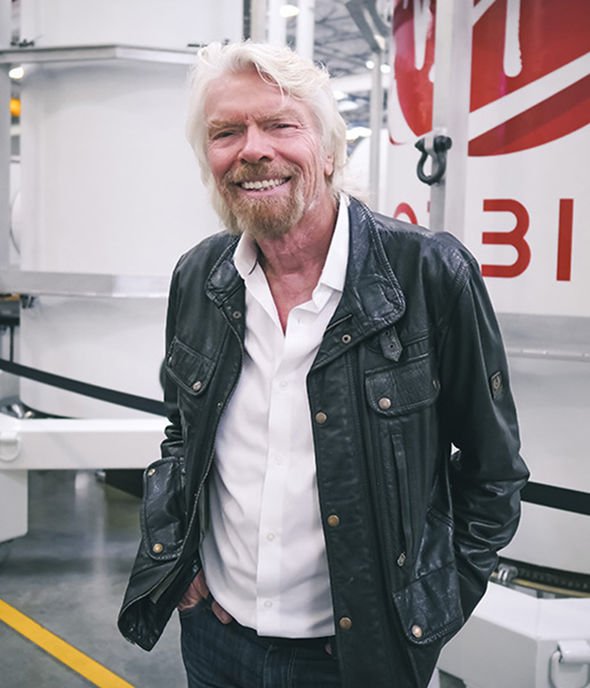
Richard Branson is using niche technology compared to his rivals (Image: SPACEPORT)
“A lot of what Jeff Bezos and Elon Musk are doing uses quite heavy lift – big launches with satellites and humans.
“Virgin is looking for dedicated launches, a red carpet service to space that is responsive and flexible.
“This is coming to the market – in the UK we have large satellite manufacturers – and instead of them going to launch sites in the US or Europe – Virgin can come to the customer.
“That’s the main difference.”
The UK has punched above its weight in the small satellite industry for years, but following Brexit there have been concerns raised over holding onto these companies.
As Chair of the Parliamentary Space Committee David Morris previously put it: “The UK needs to be much better at defending and retaining its space interests.”
DONT MISS
UK to launch own satellite with Space Command ‘to combat Russia threat [REVEALED]
Coronavirus: Psychological impact of mask-wearing [EXPOSED]
Boris Johnson’s plan to slash your energy bill by £750 [REVEALED]
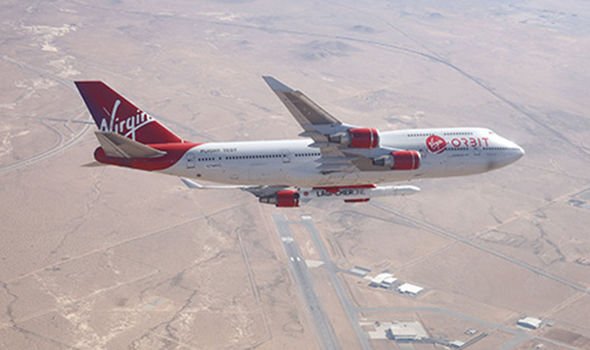
A modified Boeing 747-400 aircraft (Image: SPACEPORT)
And Ms Thorpe detailed why the new proposal could be at the heart of that plan.
She said: “It’s getting that sovereign launch capability, so we have a huge opportunity to feed the market.
“We build a large proportion of the world’s small satellites, and at the moment we are losing that when they go overseas to launch.
“That is costing the manufacturers a lot of money to transport them, store them, etc.
“What this is doing is capturing this market here in the UK and providing them the opportunity to just book in a slot down the road – that helps them massively.
“Hopefully this will decrease the barriers to accessing space.”
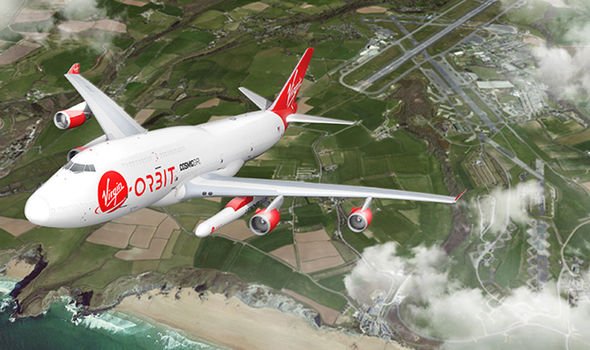
A successful test flight has been completed (Image: SPACEPORT)
The company has committed to creating 350 jobs in space and associated industries through Spaceport Cornwall, with 150 direct jobs by 2025.
This could reportedly add up to £200million Gross Value Added (GVA) to the economy, and will act as a catalyst for wider growth in associated sectors using space derived data and applications.
And while Britain may have been kicked out of projects like Galileo, Ms Thorpe said there is nothing stopping European companies and the European Space Agency (ESA) from working with the UK in the future.
Ms Thorpe also suggested Brexit Britain will be prioritised, as the company will “offer launches to UK satellite companies first”.
She added: “We’re still part of the ESA, it’s a really closed industry, we are all supportive of each other and see that we need to champion the space industry in general.
“We will obviously be offering our launches to UK satellite companies first, but we will also be open to bringing European satellites over to launch in the future as well.
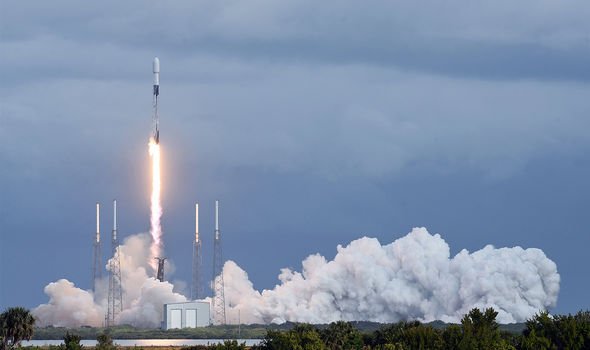
Traditionally rockets take off vertically (Image: GETTY)
“There are opportunities out there to be had.
“This is a UK launch proposition, but we have to create a global way of launching to compete on a global scale – a lot of those competing spaceports are popping up in Europe.”
Air-launch to orbit is a development of experimental aircraft that were tested during World War 2.
This method, when employed for orbital payload insertion, presents potentially significant advantages over conventional vertical rocket launches, particularly because of the reduced mass, thrust and cost of the rocket.
But Space X’s Mr Musk previously argued that this increase in performance is not worth the additional complexity for his company to invest in the technology.
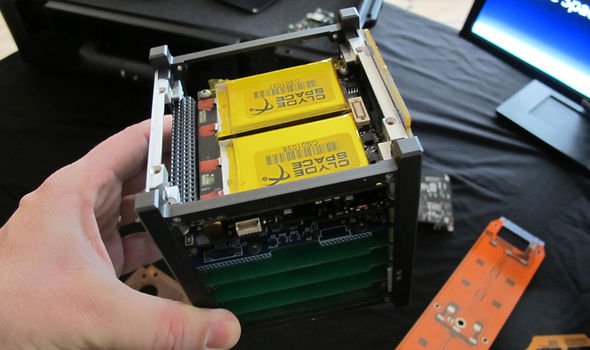
Small satellites like the CubeSat can be deployed (Image: GETTY)
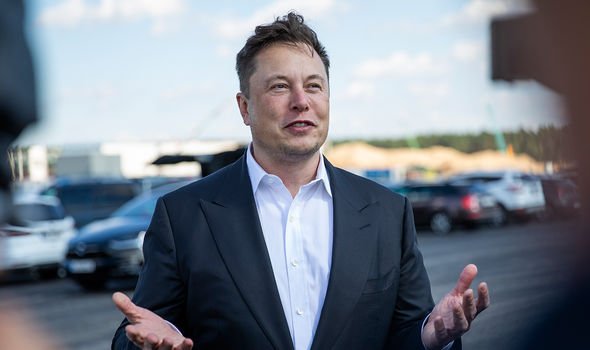
Elon Musk is sticking to using traditional launch capabilities (Image: GETTY)
He said: “Does it all add up to a meaningful improvement in payload to orbit?
“The answer is no, it does not, unfortunately. It’s quite a small improvement. It’s maybe a five percent improvement in payload to orbit.
“Then you’ve got this humongous plane to deal with, which is just like having a stage.
“From SpaceX’s standpoint, would it make more sense to have a gigantic plane or to increase the size of the first stage by five percent? I’ll take option two.”
Ms Thorpe hopes the first Virgin Orbit launches on UK soil could begin in early 2022.
